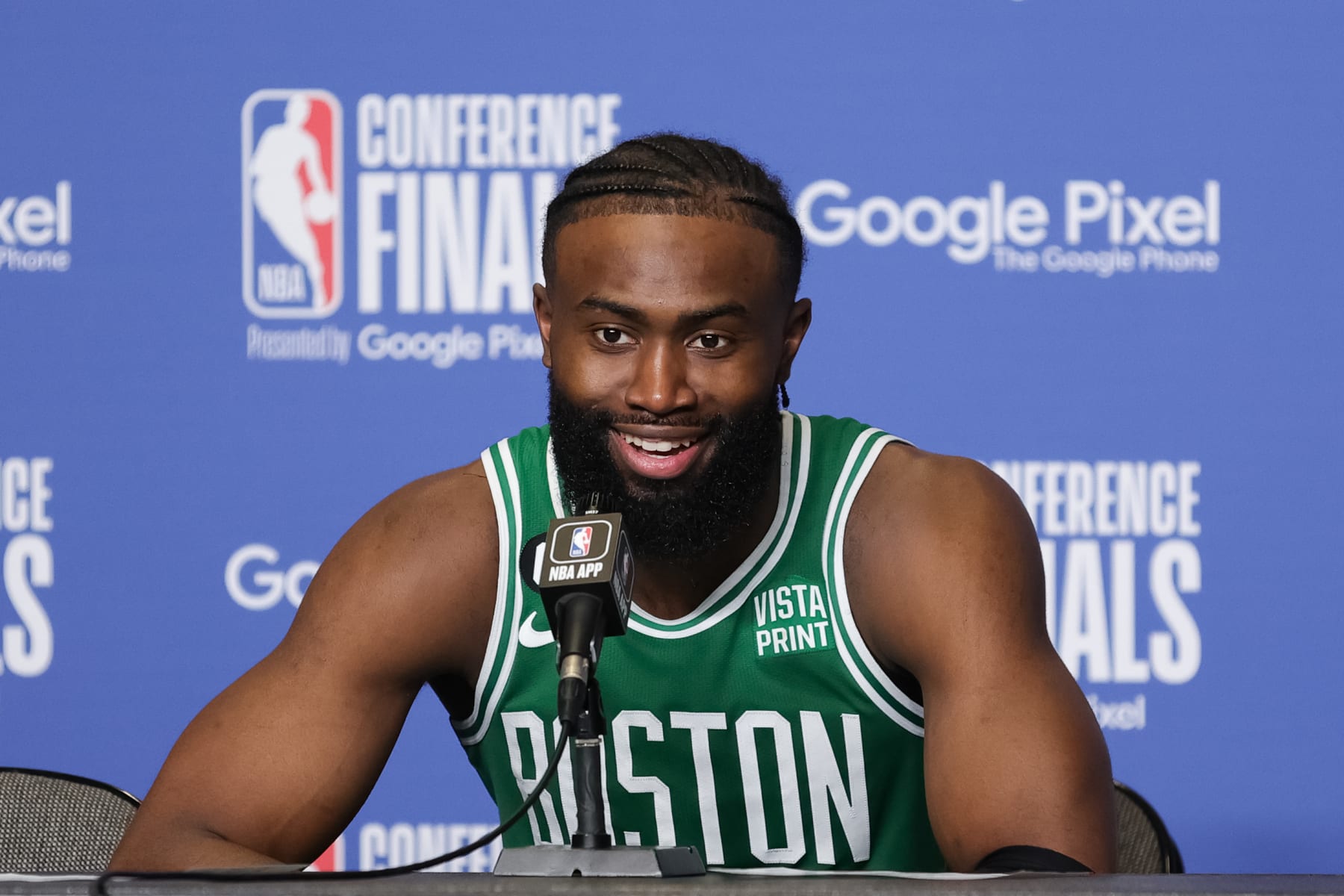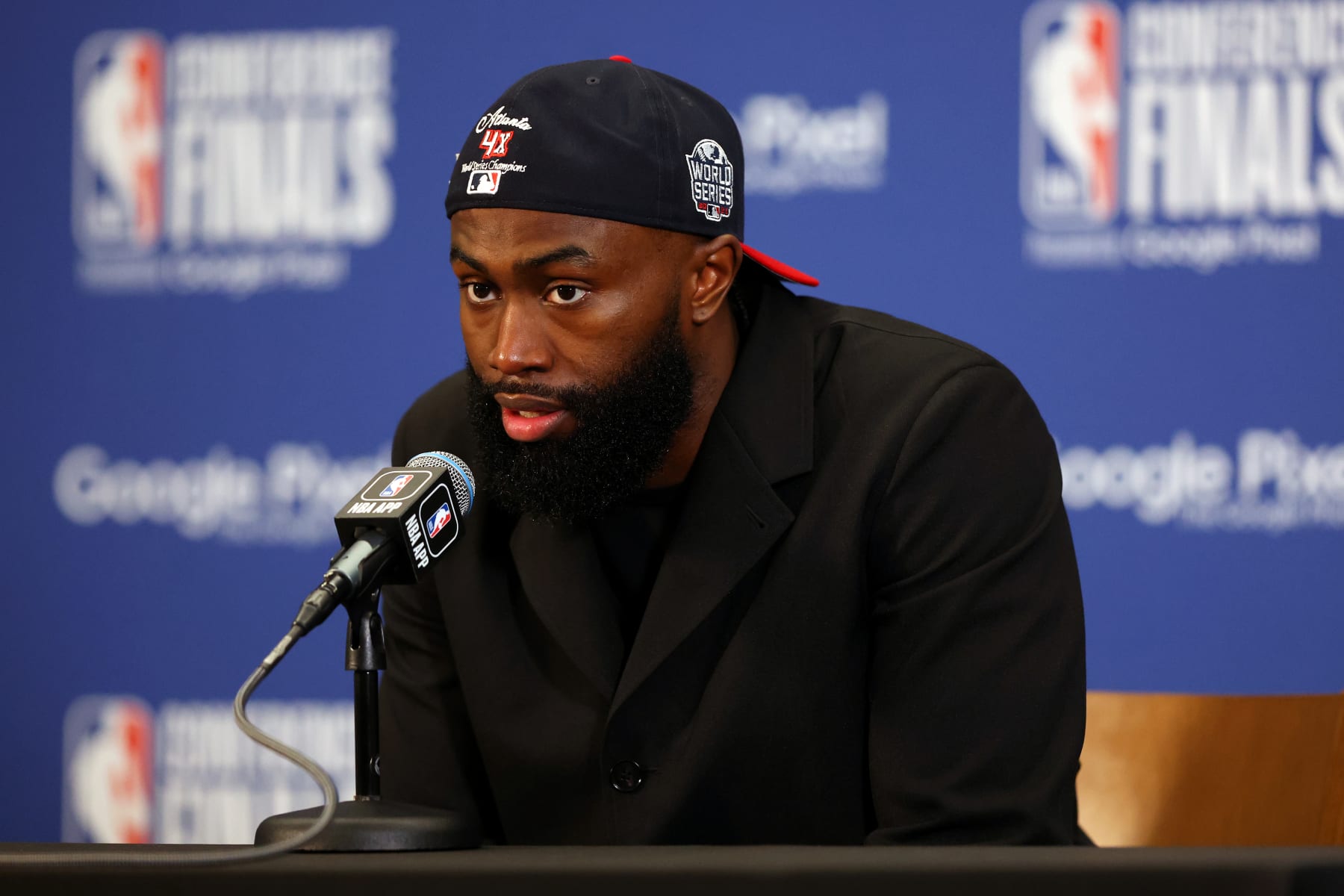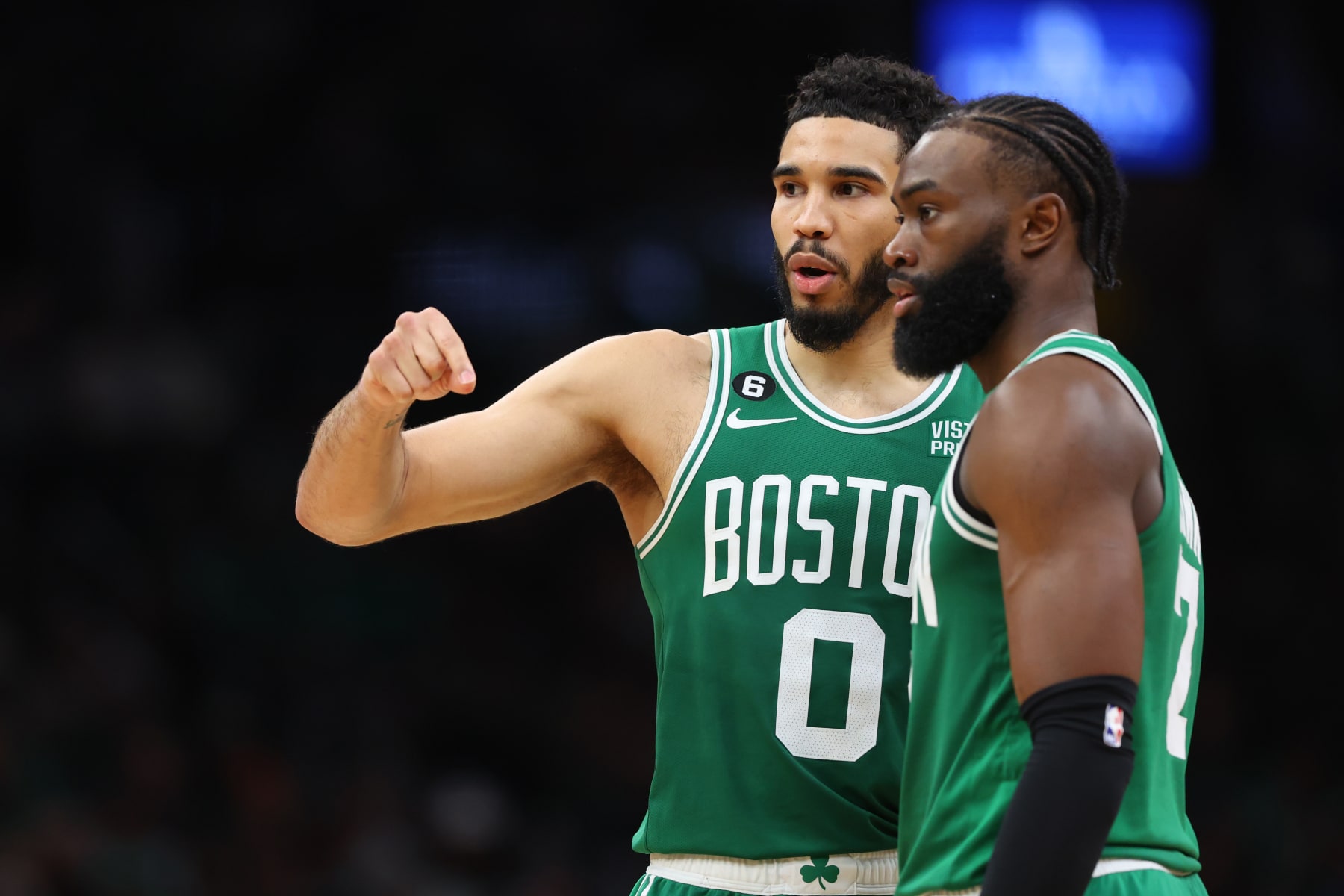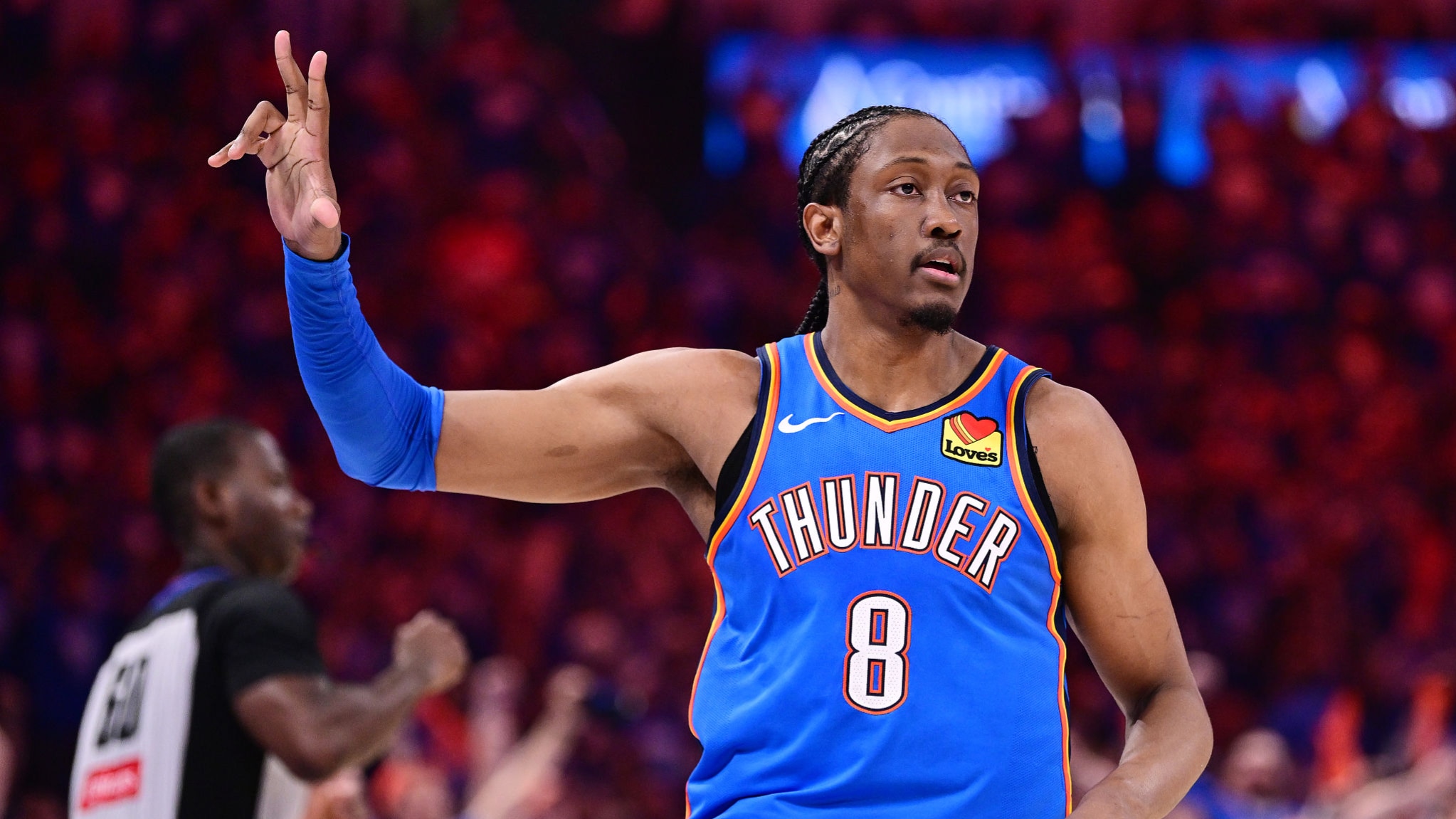Featured Video
SGA Drops 35 Points to Go to WCF ⛈️

What Jaylen Brown's 5-Year, $304M Supermax Extension Means for Boston Celtics
If the Boston Celtics weren't already in a win-now window, they certainly are now.
On Tuesday, the Celtics agreed to sign Jaylen Brown to an extension that gives him the biggest contract in NBA history.
TOP NEWS

Ranking Nikola Jokić and the Best 5-Year NBA Star Runs Ever

Dwyane Wade Gets Tattoo Encompassing Hall of Fame NBA Career, Revealed in IG Photo

2025 NBA Playoffs Eastern and Western Conference Finals Bold Predictions
Stacked on top of the $28.5 million he'll make in 2023-24, that's $332.5 million for the two-time All-Star whose current Hall of Fame probability (based on a model that uses all Hall of Fame voting to date) sits at 0.1 percent.
In today's sports world, when Kylian Mbappé is receiving a reported one-year, $776 million offer to play soccer in Saudi Arabia and the "richest contract in NBA history" seems to be a headline every year or two, we may be a bit desensitized.
But $332.5 million is an unfathomable amount of money for all but a select few who have or will walk the earth.
And, as is often the case in the NBA, it's fully guaranteed.

Boston may well have put Brown on the path toward becoming a billionaire, but what does it mean for the organization?
Well, again, it better be ready to win now. Right now.
The 2023-24 Celtics have north of $177 million in taxable salaries on their books, according to Spotrac. That gives them a current luxury tax bill of $21.7 million and puts them around $5 million shy of the second salary-cap apron.
In other words, they aren't ducking the tax this season. Even as the cap continues to rise into the future, they're likely to remain a repeater-tax team and could be in line for new, restrictive penalties that come with exceeding the second apron.
On top of signing Brown to this extension, Boston tacked on two more years and $60 million to incoming big man Kristaps Porziņģis' contract. Jayson Tatum is almost certainly getting his own record-breaking supermax next summer, too. They can't give Brown this payday and balk at doing the same for Tatum.
In 2024-25, they'll have more than $180 million committed to Brown, Tatum, Porziņģis, Malcolm Brogdon, Derrick White, Robert Williams III and Al Horford alone. The following season, they could be looking at around $140 million just for Brown, Tatum and Porziņģis.
The salary cap, luxury-tax line and second apron in 2024-25 are currently projected to be $142 million, $172 million and $190 million, respectively, according to Spotrac. If the Celtics are operating over the second apron beginning that season, they won't be allowed to:
- include cash in trades;
- use the taxpayer mid-level exception to sign free agents;
- sign a player on the buyout market who was previously earning more than the non-taxpayer mid-level exception;
- send outgoing players in a sign-and-trade;
- trade picks that are seven years in the future; or
- use a trade exception from a previous year.
The salary-matching rules in trades are stingier for these teams, too. Teams under the luxury-tax line can receive 125 percent of the salary they send out in a trade. Teams over the second apron can take back no more than 110 percent this year and 100 percent beginning in 2024-25.
In short, team-building has become much trickier for second-apron teams under the new collective bargaining agreement. The Celtics seem likely to be among those teams for at least the next few years.
The only way out may be trading one or both of Brown and Porziņģis before their deals expire. Perhaps that's why ESPN's Zach Lowe opined about the possibility of Brown finishing this contract on another team on Tuesday's episode of his Lowe Post podcast.
This analysis could change if the league gets another influx of cash when a new television rights deal kicks in after the 2024-25 season. However, the owners and players have already agreed on "cap smoothing" provisions that will prevent a salary boom like the one we saw in 2016.
The cap is going to keep rising, but it won't have a massive, one-time spike. And paying a 32-year-old Brown $69 million in 2028-29 could be incredibly onerous.
All of that brings us back to the original point: Boston needs to win a championship before the salaries of Brown, Tatum, Porziņģis and whoever else is left become unmanageable.
While the numbers are daunting to look at right now, we've certainly seen worse bets in the NBA. Just revisit the 2016 free-agency class if you need a refresher.

Advanced stats pegged Brown as a top 40-50 player in 2022-23 (and a top 30-40 player the year before), but he's had some huge playoff runs. In 2022, when the Celtics lost to the Golden State Warriors in the Finals, he averaged 23.1 points and shot 37.3 percent from deep in the postseason.
Magic Johnson, Dave Cowens, Kobe Bryant and Scottie Pippen are the only players in NBA history with more conference finals minutes than Brown before their 27th birthdays.
Wanting to keep him and Tatum together for at least the next few years makes sense. With both, Boston is absolutely among the teams that can win a championship.
If that happens, Brown's deal will have been worth it. Heck, even if the Celtics don't win it all with this group but eventually move Brown's deal for a decent return, it still might have been worth it.
But there is significant potential downside to this deal. And we may not have to wait as long as the contract itself to find out which way it goes.






